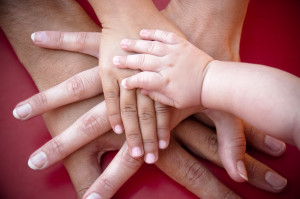Divorced parents opt for Joint Legal Custody so they can make all major decisions together regarding their children’s health, education, religious upbringing and  extra curricular activities. In the best of situations and immediately following a divorce when the dust has not quite settled, there can be room for misinterpretation as to where the line is between a major decision and a lesser one.
extra curricular activities. In the best of situations and immediately following a divorce when the dust has not quite settled, there can be room for misinterpretation as to where the line is between a major decision and a lesser one.
Here is an example:
I received a call from one of my clients. She and her former husband had mediated their divorce agreement with me and were now having some difficulty on what joint legal custody really meant on a day-to-day basis.
The mother had “allowed” their daughter to go on an overnight school trip without consulting the father. The mother did not think it necessary to check in with him as the child was with her on most weeknights, and most of the children in her daughter’s class were going on that same trip. The father was very upset. He had no problem with his daughter going on the trip, he just wanted to be part of the decision making. There had been a few other similar incidents.
The parents came in for a mediation session to redefine their parameters of decision making. They each took turns explaining their feelings: the father did not want to be left out of his daughter’s life and not having her day-to-day was proving to be very hard for him. The mother felt that it was a burden to have to call him for these “unimportant” questions. She was used to making these decisions even when they were married and living together.
The parents agreed to the following:
- As it is quite impossible to list all the circumstances that may require a phone call, they will be in touch twice a week, via text or email, to stay informed of what is going on in their child’s life.
- If necessary, text or email communications will be followed by a phone call.
- They will share information regarding school/weekend, sports or social activities, health and emotional issues.
- If the child is involved in any event, the information about the event will be shared. Neither parent will assume that the other parent cannot attend and will let him/her make the decision.
- Any question requiring research will be done by either parent, depending on their availability, and shared with the other parent, so that both can participate fully in the decision making.
- If the child is going to be out overnight from either of their homes, they will inform the other parent.
This couple’s experience is often part of post-divorce adjustment for a family with children. Being more aware of each other’s feelings is important in this process. We need to put ourselves in the other parent’s shoes, and do for him/her what we would want done for ourselves.
When in doubt, share with the other parent. Our children will be the ultimate beneficiaries.
Do you have an experience to share about a post-divorce parenting issue with your ex?
Comments from Social Media
Joint legal custody can only work when you have two mentally competent adults who love and respect their children. With the added ingredient being they can separate their differences for the total benefit of their children is what joint legal custody should mean.
Njideka N. Olatunde
_______________________________________________________
This is taken for granted in my own part of the world where it is believed that a marriage that has already produced children does not really totally get dissolved because of the duty imposed on both parents to meet whenever the need arises to make decisions for the welfare of the children
Vincent omorie
_______________________________________________________
It should be like that ! You are so right but unfortunately some people let their own emotions and conflicts with the other parent get in the way.
Jennifer Safian
_______________________________________________________
Emotions take the back seat with time, as there are bound to be some compelling reasons for such joint decision making and action that both parents can ill afford to ignore.
Vincent omorie
[/fusion_builder_column][/fusion_builder_row][/fusion_builder_container]Jennifer Safian
divorce and family mediation
upper east side of manhattan (nyc)
new york, ny
(917) 881 5206
jpsafian@gmail.com
Latest posts by Jennifer Safian (see all)
- misinterpreting your partner’s demeanor may lead to conflict - October 9, 2024
- demystifying the money talk - September 11, 2024
- why are we afraid to discuss money? - August 21, 2024





Leave A Comment